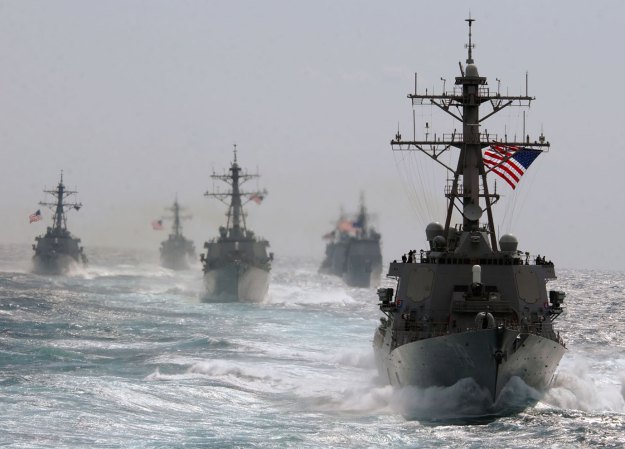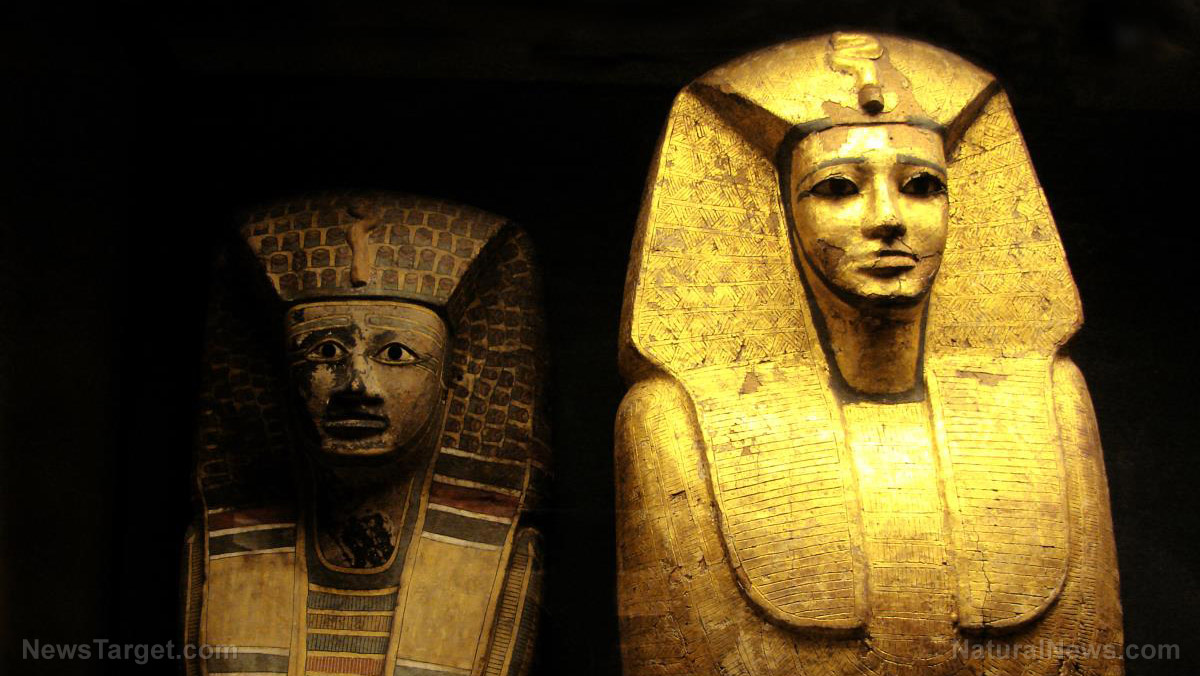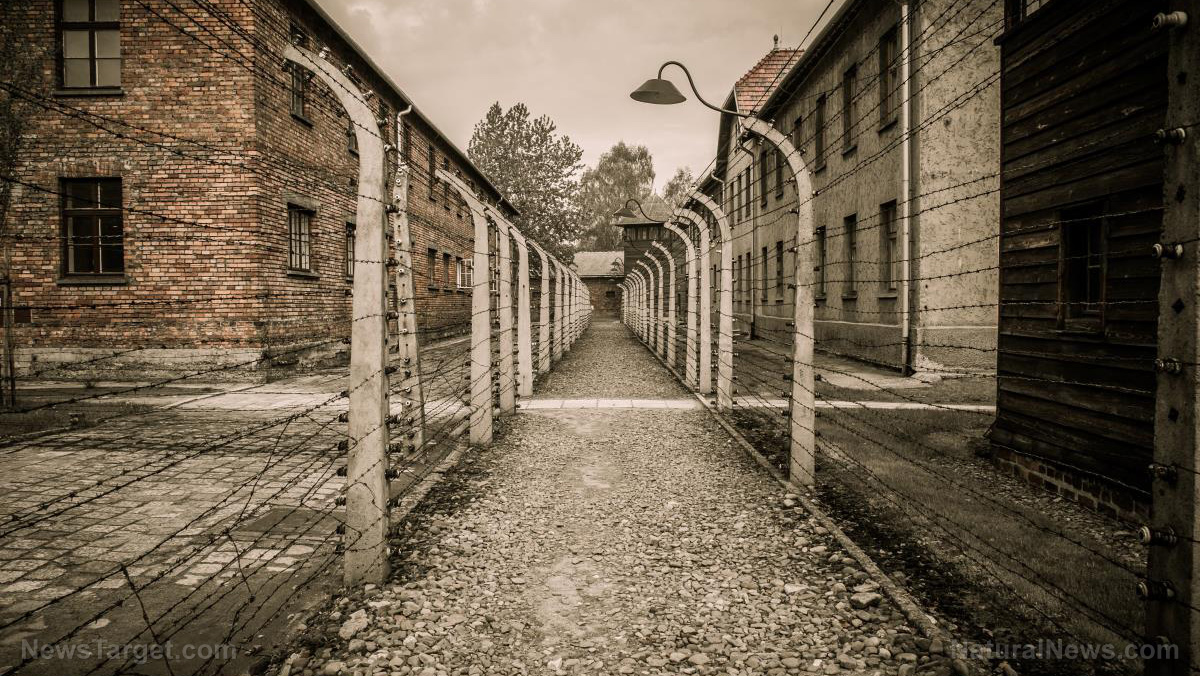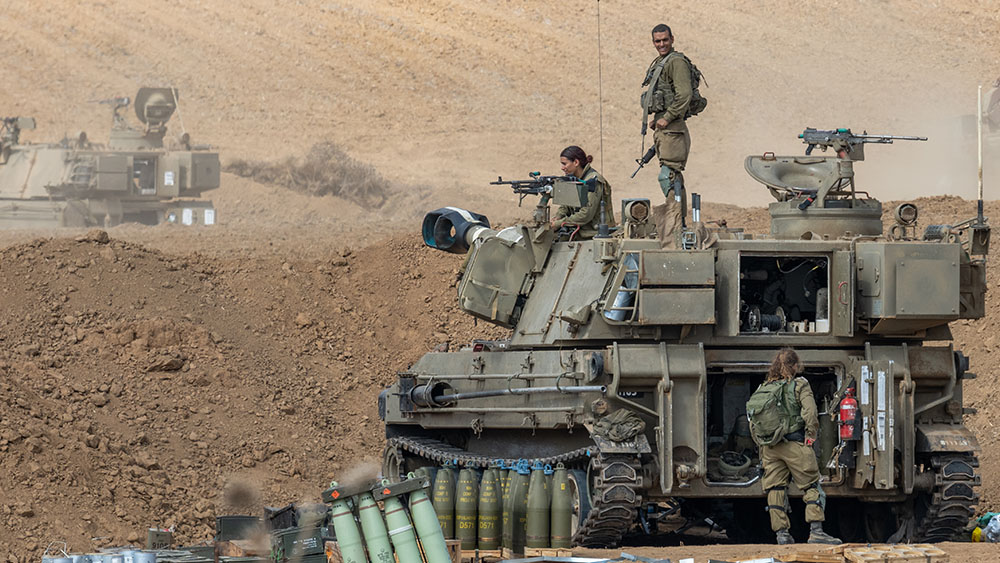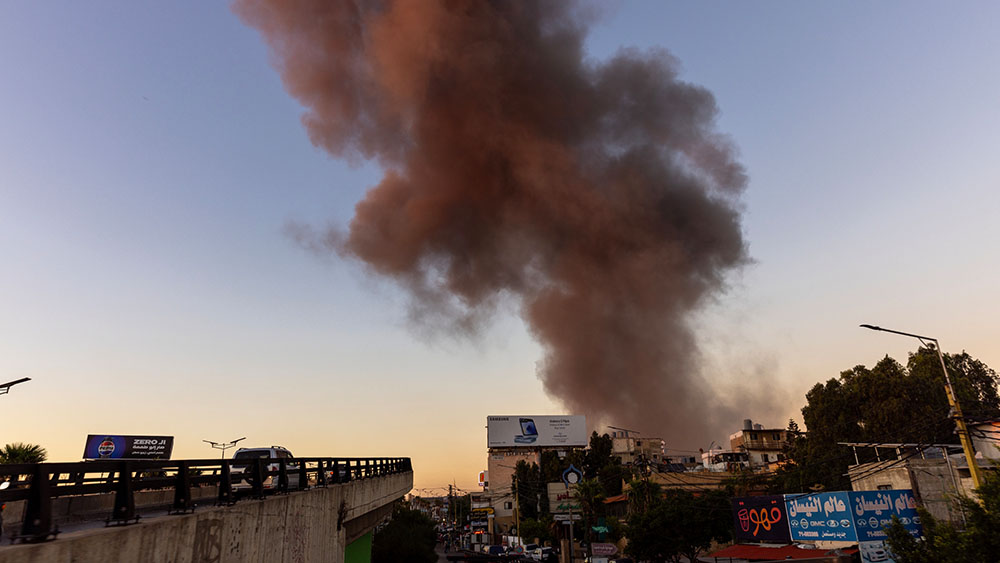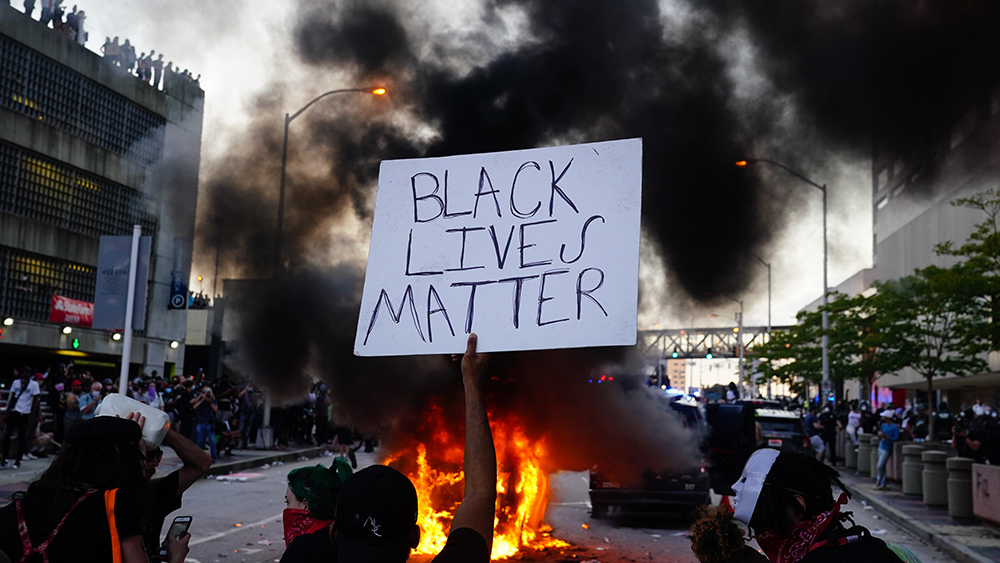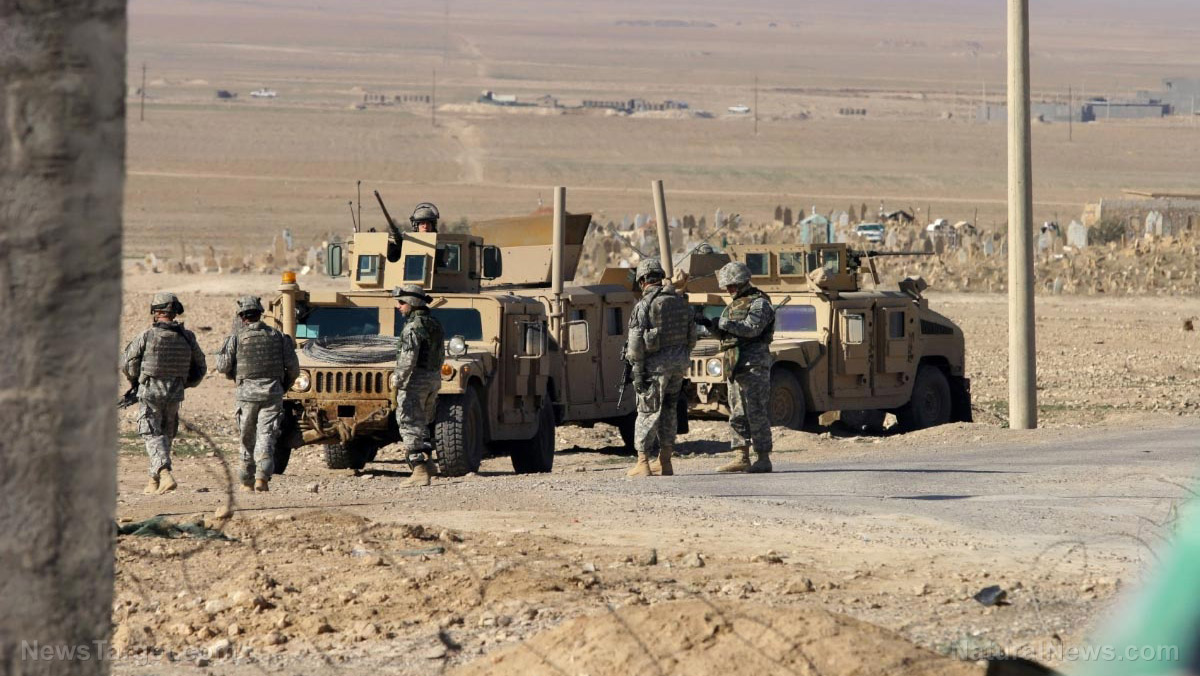Operation Northwoods: Unveiling the MANIPULATION and DECEIT of U.S. military to justify a war against Cuba
12/18/2024 / By Nolan Barton

- In 1962, during the Cold War, a secret military plan named Operation Northwoods was uncovered. It was proposed by high-ranking U.S. military officials to fabricate incidents to justify a war against Cuba and overthrow Fidel Castro’s regime.
- General Lemnitzer’s plan involved staging attacks, planting false evidence of Cuban aggression, and even simulating a hijacked aircraft crash, all to provoke public outrage and support for military action against Cuba.
- Operation Northwoods is not an isolated incident but part of a broader trend where governments use deceit to manipulate public opinion and justify military intervention. Similar incidents include the sinking of the USS Maine in 1898 and the Gulf of Tonkin incident in 1964.
- President John F. Kennedy rejected the Northwoods plan, but the officials involved in the plan were not held accountable and continued to influence military and political landscapes.
- Operation Northwoods underscores the need for transparency and accountability in government, especially in matters of national security. It highlights the potential for government deceit and the erosion of democratic principles, prompting ongoing debates about trust in institutions.
In the annals of American political intrigue, few moments have been as chilling as the revelation of Operation Northwoods. This secret operation, code-named Northwoods, is a stark reminder of the lengths some officials are willing to go to achieve their political goals.
The year was 1962, and the United States was locked in a tense stand-off with Cuba under Fidel Castro. As Cold War tensions escalated, a group of high-ranking military officials, led by General Lyman Lemnitzer, chairman of the Joint Chiefs of Staff, proposed a top-secret plan that would shock the nation. Northwoods was a blueprint for fabricating an outrage that would justify a war against Cuba.
General Lemnitzer’s proposal was straightforward but diabolical. The plan involved staging a series of incidents to provoke a reaction from the American public, thus creating a pretext for military action. These provocations included planting false evidence of Cuban attacks on U.S. soil, bombing U.S. ships near Cuba, and even launching a wave of terrorism in major cities, all under the guise of Cuban aggression.
In a secret memorandum, the generals outlined a stunning proposal: They would simulate the hijacking of a U.S. aircraft, then crash it, and blame Cuba for the attack. This scheme was part of a wider strategy to provoke war, with the ultimate goal of overthrowing Fidel Castro’s regime.
Yet, as bold as this plan was, it was not an isolated incident. History is replete with instances where governments have engaged in covert actions to manipulate public opinion and justify military intervention. From the sinking of the USS Maine in 1898, which led to the Spanish-American War, to the Gulf of Tonkin incident in 1964, which escalated U.S. involvement in Vietnam, governments have repeatedly resorted to deceit and pretext to suit their agendas.
The relevance of Operation Northwoods extends far beyond its historical context. In the wake of the September 11, 2001, attacks, many have drawn parallels between the proposed Northwoods operations and the events that led to the U.S. invasion of Afghanistan and Iraq. Questions have been raised about the veracity of the official narrative and whether there was an underlying agenda to provoke a response. (Related: 9/11 revisited: New York Fire Commissioners call for new investigation.)
The key players in the Northwoods affair were members of the Joint Chiefs of Staff, including the highest-ranking officers in the Pentagon. The fact that such a sinister plan was devised and approved by individuals in positions of great power and influence raises profound questions about the nature of trust in government and the military.
JFK rejected Operation Northwoods
President John F. Kennedy, to his credit, rejected the Northwoods plan. His decision was courageous and solidified his legacy as a leader who stood for peace and diplomacy. However, Kennedy’s resistance was not enough to salvage the integrity of the entire system. The individuals who proposed Northwoods were not dismissed or held accountable for their actions. Instead, they continued to exercise significant influence in the military and political landscape.
The implications of Operation Northwoods are far-reaching. It provides a stark reminder of the potential for government deceit and manipulation, especially in times of crisis. It also highlights the need for transparency and accountability in institutions, particularly in matters of national security and military engagement.
Moreover, the Northwoods affair raises profound questions about the nature of patriotism and the relationship between citizens and their government. If such a plan was conceived and supported by the highest levels of military and political leadership, what does this say about the potential for tyranny and the erosion of democratic principles?
The legacy of Operation Northwoods continues to resonate in today’s political and social discourse. With the rise of conspiracy theories and distrust of government, the revelations surrounding Northwoods have fueled a broader conversation about the hidden machinations of power. It serves as a sobering reminder that in a world of shadowy operations and opaque decision-making, vigilance is the best defense against the encroachment of tyranny.
In conclusion, Operation Northwoods is more than a historic footnote. It stands as a chilling testament to the lengths some in power will go to achieve their goals, and it underlines the critical need for transparency and accountability in democratic institutions.
Read more stories like this at Deception.news.
Watch this video to know more about Operation Northwoods.
This video is from the Buzzand_NZ channel on Brighteon.com.
More related stories:
A SPY AMONG US: Former U.S. ambassador charged with secretly SPYING for Cuba over a 40-year period.
POWER PLAY: Cuba spy station brings US-China rivalry closer to American shores.
Sources include:
Submit a correction >>
Tagged Under:
big government, Cold War, conspiracy, corruption, Cuba, deceit, deception, false-flag, Fidel Castro, Gulf of Tonkin incident, Hidden History, JFK, lies, manipulation, military intervention, national security, operation northwoods, pentagon, politics, public opinion, real history, traitors, treason, War
This article may contain statements that reflect the opinion of the author
RECENT NEWS & ARTICLES
COPYRIGHT © 2018 REALHISTORY.NEWS
All content posted on this site is protected under Free Speech. RealHistory.news is not responsible for content written by contributing authors. The information on this site is provided for educational and entertainment purposes only. It is not intended as a substitute for professional advice of any kind. RealHistory.news assumes no responsibility for the use or misuse of this material. All trademarks, registered trademarks and service marks mentioned on this site are the property of their respective owners.



